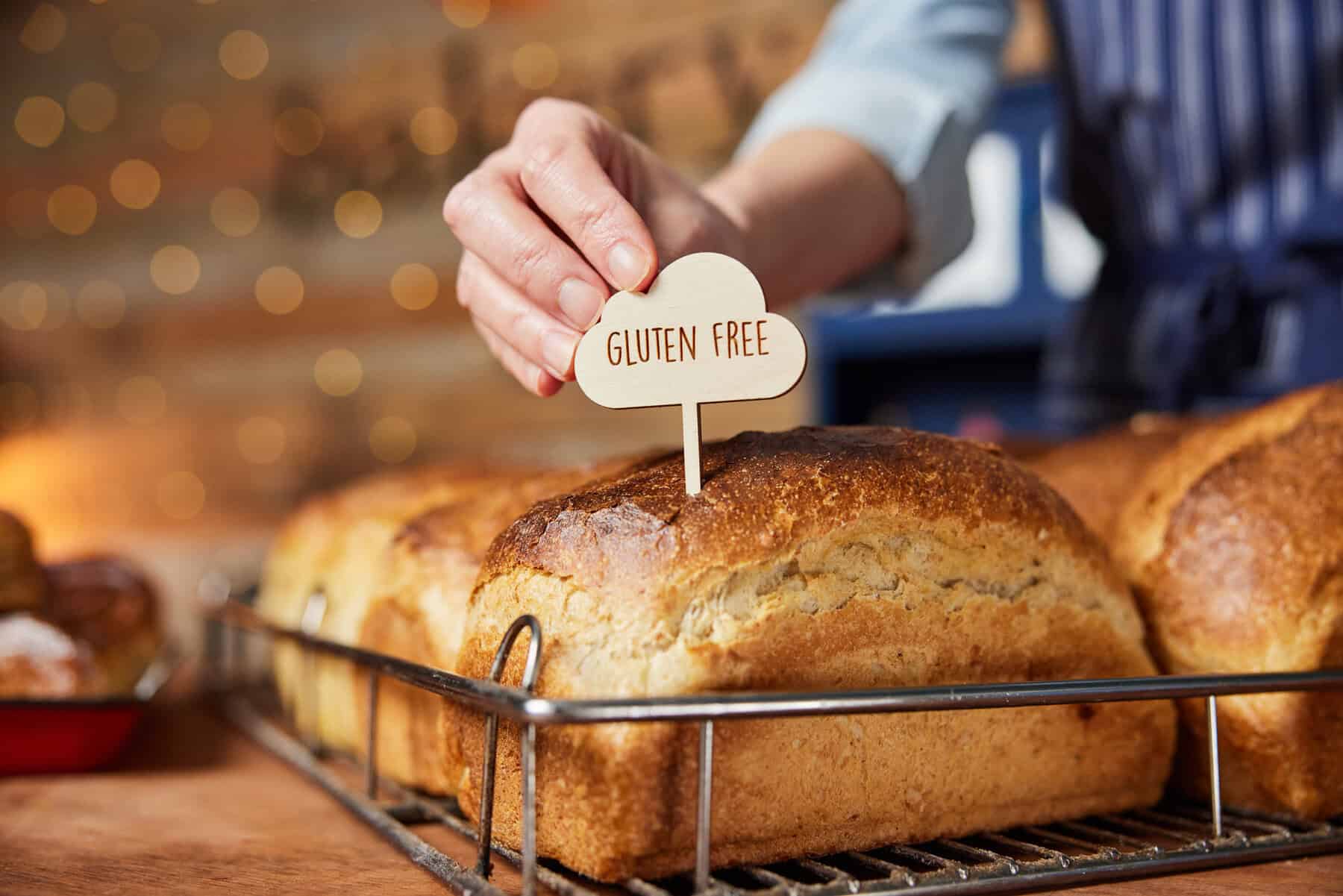
Living with coeliac disease requires significant lifestyle changes. At Wesley Research Institute, we understand how overwhelming this journey can feel, whether you are newly diagnosed or supporting a loved one. In this article, we’ll share practical, research-backed tips to help both coeliac patients and their support networks navigate this transition with confidence.
For more information on coeliac disease and ongoing research, visit our Coeliac Disease Research Program.
If You’re Unsure about Your Diagnosis
A gluten-free diet isn’t always the best solution for everyone. . If you suspect you have coeliac disease, it’s important to consult a doctor before making any dietary changes. Removing gluten before seeing a doctor can make it harder to get an accurate medical diagnosis and delay appropriate treatment. It can also lead to unnecessary dietary restrictions and nutritional imbalances. A confirmed diagnosis ensures you receive the right treatment and long-term support for your health.
If you have already been diagnosed with coeliac disease and are looking for additional treatment options, consider joining one of the Coeliac Disease Clinical Trials. By participating, you will not only gain access to potential new therapies and expert medical monitoring but also contribute to groundbreaking research that could improve treatment options for yourself and others living with coeliac disease.

Adjusting to a Gluten-Free Lifestyle as a Newly Diagnosed Patient
If you have been diagnosed with coeliac disease, strict lifelong avoidance of gluten is essential. Gluten is found in wheat, spelt, barley, rye, and their derivatives. Oats contain avenin, a close relative of gluten, and should also be avoided. These grains are found in a large variety of favourite staples such as bread, pasta, biscuits, crackers, cakes and breakfast cereal. Adopting a gluten-free diet can feel overwhelming at first but taking it one step at a time can make the transition easier. Here are some practical ways to simplify the process:
- Start Simple: Choose foods that are naturally gluten-free like fresh fruits, vegetables, meat, fish, dairy, and gluten-free grains (e.g., rice, quinoa, corn, millet, buckwheat).
- Look on the Back of the Packet: Read labels carefully to spot hidden gluten in processed foods, sauces, and seasonings.
- Take It One Meal at a Time: Ease into your gluten-free lifestyle by gradually replacing one meal at a time with gluten-free alternatives. Start with simple swaps, like trying gluten-free bread for breakfast, then experiment with gluten-free pasta for dinner. As you become more comfortable, explore gluten-free flour for baking and other substitutions.
- Keep Snacks Handy: Gluten-free snacks like rice or corn cakes, fruit, and nuts can prevent you from being caught out when options are limited.
- Be Cautious when Eating Out: Ask the staff about ingredients, preparation methods and potential cross-contamination.
- Find Community: Join Coeliac Australia, a trusted organization that offers education, product recommendations, and forums where you can connect with others living with coeliac disease. Being part of a supportive community can help you navigate challenges and stay motivated on your gluten-free journey.
Managing
Being newly diagnosed can come with a flood of information. There is a lot of well-meaning, but often inaccurate and conflicting advice online. Follow these simple recommendations to ensure that you find the right information without confusion and overwhelm:
- Use Reliable Sources: Bookmark the website of a trusted organisations like Coeliac Australia for accurate, evidence-based, unbiased information.
- Consult with a Dietitian: To ensure you achieve a healthy, nutritionally complete gluten-free diet that fits your lifestyle and can be maintained for life, seek expert advice from an accredited dietitian specialising in coeliac disease.
- Learn About Alternative Treatments: Stay up to date with emerging treatment options through the Wesley Research Institute. Reach out to our team to find out if clinical trials may be right for you.

Supporting a Family Member with Coeliac Disease
When a loved one has coeliac disease, creating a supportive home environment can make their transition to a gluten-free lifestyle much easier. Here are some practical ways to help:
- Educate Yourself: Understanding the science behind coeliac disease helps you make informed choices and better support others. Trusted sources like Coeliac Australia and
- Prevent Cross-Contamination at Home: Use separate chopping boards and utensils, wipe down cooking surfaces and wash pots and pans thoroughly before cooking gluten-free meals. Use separate butter, spreads, and condiments to prevent cross-contact from shared knives. Have a dedicated storage area for gluten-free foods.
- Learn to Read Labels: Familiarize yourself with ingredient lists and hidden sources of gluten to help with grocery shopping and meal prep.
- Find Easy, Gluten-Free Recipes: Cooking gluten-free doesn’t have to be restrictive. Experiment with new recipes to make meals enjoyable for everyone in the household.
- Cook Gluten-Free Together: Explore new recipes and try gluten-free alternatives as a family to make the transition feel less isolating and meals more enjoyable for everyone in the household.
- Advocate and Educate: Support your loved one when dining out or attending social events by helping ask about food preparation and ingredients.

Dining Out Safely
- Research restaurants that have dedicated gluten-free kitchens or menu options. Check out the list of accredited gluten-free restaurants on Coeliac Australia website to find a coeliac-safe restaurant near you.
- Call ahead and ask detailed questions about food preparation practices and cross-contamination protocols, e.g. a separate fryer for gluten-free foods.
- Communicate Clearly: Inform your server that you have coeliac disease, not just a preference for gluten-free food. Ask detailed questions about food preparation, including separate fryers and dedicated cooking surfaces.
- Watch for Hidden Gluten: Avoid sauces, gravies, and dressings unless confirmed gluten-free. Be cautious with fried foods and ask if they are cooked in a separate fryer.
- Request Simple, Safe Meals: Opt for whole, naturally gluten-free foods like grilled meats, vegetables, and salads (without croutons). Ask for a simple dressing of olive oil and balsamic vinegar or lemon juice.
- Trust Your Instincts: If a restaurant seems unsure about gluten-free procedures, it’s best to choose another place.
Next Steps
Whether you are newly diagnosed or supporting a loved one, adapting to a gluten-free lifestyle is a journey that gets easier with time. Education, preparation, and community support make all the difference.
For additional insights and expert discussions, check out our Coeliac Disease Webinar Series.
If you’re looking for more treatment options beyond dietary changes, explore our Coeliac Disease Clinical Trials to get involved in groundbreaking research.
Want to stay informed about advancements in coeliac disease? Join the Coeliac Research Network or explore the latest updates at Wesley Research Institute today by visiting our Coeliac Disease Research Program.
Sign Up to the Coeliac Research Network